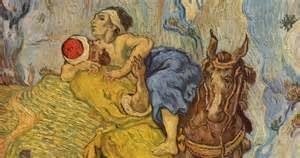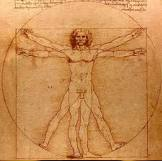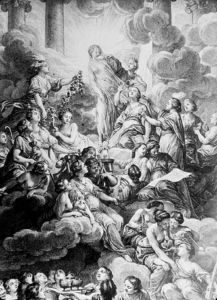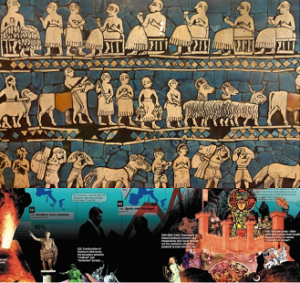
Arquivo para a ‘Information Science’ Categoria
The partner and the next
The concrete relationship of social friendship is only effective in each neighbor, the idea of generalizing social attitudes can be inserted into a culture, but it will only be effective if in the relationship with each person with whom we interact it becomes effective, otherwise it is discourse and ideology.
only effective in each neighbor, the idea of generalizing social attitudes can be inserted into a culture, but it will only be effective if in the relationship with each person with whom we interact it becomes effective, otherwise it is discourse and ideology.
Paul Ricoeur’s text “The partner and the neighbor”, which is part of the book “History and Truth” not only modifies the concept of historical truth but also reveals that there is only a concrete social relationship to the extent that we are part of our various social circles and to each concrete personal relationship.
Continuous selfishness, prejudice opens the soul into abysses of separation with the Other, makes it a continuum of separation, exclusion leading to disbelief in love and social solidarity.
Changing our attitude, transforming selfishness into gestures of kindness and living in each specific relationship a love that is even superhuman that gives dignity and respect to each being that passes by us, is not altruism or a way of ignoring social conflicts, it is also raising the soul to a stage of happiness with others, and spreading hope.
While the partner relationship is only of personal interest, the partner relationship goes beyond these limits and increases the level of trust, inclusion and different approach to the partner:
When discussing the difference between these relationships, he discusses charity: “Charity does not need to be where it appears; Also hidden in the humble and abstract post office is social security; it is often the hidden part of the social”, Paul Ricoeur in Le socius et le Prochain (1954), and is translated in the 1968 book History and Truth.
The text reminds us that just as institutions can only have corporate relationships, they can also have interpersonal relationships, of affection and solidarity, which make them less cold and less bureaucratic, where we see not a customer or a service more, but a close one in which you may be interested.
I t is not by chance that it is a chapter on History and Truth, because truth is only established between true friends who are close, and if they are partners it will only be to be closer, while maintaining social appearance, even with a spirit of empathy, is not yet the true human relationship if the personal one is not realized in a concrete way.
Thus, social friendship must necessarily involve true love for each person who passes by our side.
Ricoeur, P. : História e Verdade, trans. F. A. Ribeiro. Companhia Editora Forense: Rio de Janeiro, Brazil.
(Português) O próximo e a amizade social
Paul Ricoeur’s text “Le socius et le prochain” (the partner and the neighbor) has already been explored in this post, highlighting the difference between a limited temporal relationship of partner and a relationship of philia and friendship that can last a lifetime: the next.
has already been explored in this post, highlighting the difference between a limited temporal relationship of partner and a relationship of philia and friendship that can last a lifetime: the next.
We now want to reread the comment made by Henri Bergson on this text, in which he articulates that the “I” starts from a “we” that we construct as an “I”, but that it is not separate from this, so the question arises that “we ” it’s that?
Does it designate these other people that we encounter every day in our family and professional environments, or this diffuse presence of others, of “everyone” that, for example, we claim when we try to make someone understand?
It means that we act in a way that is compatible or incompatible with life in society: “what would happen if everyone liked you?” in fact, there are, to say the least, two very distinct relationships with others: others as structure and others as praxis.
By the first term, this basis is understood as the efficiency of laws, institutions, and even more so, the awareness we have of our incessant visibility in the eyes of society: what is done is done based on the possible existence of others, even when no one is physically “there”, by the notion of another as praxis, we must understand the actions through which someone else, however, this distinction corresponds exactly to what Paul Ricoeur wrote in his book “History and Truth”, written to differentiate between “partner and neighbor”, because not only in the business world, but also in politics and social groups, what is true can be related to some narrative of the “society” belonging to.
We can speak of the presence of the Other as a structure in the sense that the socius designates this place, this simultaneously implicit and legal consideration of an invisible, anonymous, almost abstract other, but at the same time omnipresent, a bit like conditional, who would never cease to be presente, manifest to us in the Present, to become present, but never physically (but mentally, constitutionally).
By “near”, Paul Ricoeur designates the immediate, punctual physical presence of another person I know. We have good experiences of being close in big cities, as there we experience many promiscuous situations (subway, queues, etc.), but at the same time time, this crowd with which I am forced to compose is not made up of “neighbors”, since we do not know them.
If we activate praxis with others, always passing through the “socius” structure, the relationship presupposes a margin of choice, of election, of desire for approximation or rejection, as if our gross salary and our net salary, what is taken away of our salary paid, through supervision by an administrative authority, the “organization”, the State, social security, etc.
Thus the partner is linked to a social “praxis”, while the next depends only on a choice of human relationship independent of the structural relationship to which he is subject.
Ricoeur, Paul (1968) “The socius and the neighbor”, in History and Truth (in portuguese: História e Verdade), trans. F. A. Ribeiro. Companhia Editora Forense: Rio de Janeiro, Brazil.
Procrastinate and do good well
Procrastination means postponing tasks that are normal in everyday life

Credits Harvard Business Review
and other exceptional ones that cannot be postponed, the same Society of tiredness (Byung Chul-Han wrote a book) is also the society of procrastination.
Postponing tasks is counterproductive, when you want to optimize your time and have time to rest, do leisure or meditate, you need to not procrastinate and do the necessary tasks so that there is time available to feel the Aroma of Time (another book by Byung Chul- Han).
However, we can be involved in unnecessary activities, in small and large vices, which in addition to stealing our time, also steal our time to stop, rest and Be.
It is a human problem of all times, for those who believe that this happens because of new media and cell phones, which can be addictions like others, as the ancient poet Hesiod (800 BC) wrote: “leaving your work until tomorrow and the next day” is a human problem.
Harvard researcher Caroline Webb in an article in the university magazine wrote: “this is because it is easier for our brains to process concrete things rather than abstract ones, and the immediate discomfort is very tangible compared to the unrecognizable and uncertain future benefits”, Therefore, activities that take us out of our routine and place us in a social dimension, that is, with the Other, move our brain to “uncomfortable” regions.
Believing that you have to wait until you’re in a good mood to do something is a trap that can lead to procrastination. Joseph Ferrari, a psychology professor at DePaul University in the United States, discovered that the thought “I’m not in the mood to do X task” can lead to a vicious cycle.
Perform small tasks, which professor and researcher Tim Pychyl tested and confirmed the effectiveness of: “one that students started, they evaluated the tasks as less difficult and less stressful, and even more enjoyable than they thought”, so this returns the routine.
Tasks such as making the bed, preparing breakfast, removing the dishes and washing them, and others can also bring a reward, taking away stress and restoring harmony around you.
If done to do something good, and if done well, they also bring a spiritual reward and they often feel an “inexplicable” relief that is the result of doing something well.
Reference:
Webb, Caroline. How to Beat Procrastination, Harvard Business Review, 2016, Access in: february 2024, Available in: https://hbr.org/2016/07/how-to-beat-procrastination
2 years of war and diplomacy
February 24th marked 2 years of Russia’s war with Ukraine, which the Russian government calls a “special operation”, which has already killed thousands of civilians in Ukraine, which caused a rupture with the West and which has no prospect of a truce and can scale to Europe.
with Ukraine, which the Russian government calls a “special operation”, which has already killed thousands of civilians in Ukraine, which caused a rupture with the West and which has no prospect of a truce and can scale to Europe.
Despite the weakening, Zelensky’s speech promised victory, although he suffered setbacks at the beginning of the year on several fronts, Putin’s speech is increasingly fierce and eloquent and a direct confrontation with NATO forces, the which would be a tragedy for the entire planet due to the war and nuclear potential that would be involved.
In Palestine, Israel continues with bombings already reaching the border city with Egypt of Rafah, in the suburb of Shaboura, according to the Gaza Ministry of Health, 97 people were killed and there were also attacks in some neighboring villages.
Qatar will host a meeting between Hamas and Israel with the aim of finalizing a truce agreement this week, according to Egyptian sources, the United States always considers a definitive peace agreement possible, but continues to support Israel and continues conflicts with the Houthis of Yemen that prevents the passage of American-flagged cargo ships.
A new strategy in Yemen has been tactical forces, led by the United Kingdom (pictured), that assist in both mapping and bombing the Houthis’ land bases, as they have no vessels, carrying out attacks on ships from land bases.
Brazilian President Lula caused a serious crisis with Israel by comparing the current war in Israel with the Nazi period, precisely the biggest genocide and the most cruel war against the Jewish people and provoked reactions from the Netanyaho government, its allies and Jewish Brazilians who They demand equal treatment to that given to Palestinian refugees.
The series of wars and retaliations harden hearts and put into combat the forces that polarize power around the world. There are few countries that do not align themselves, although the hope of peace resists in a heroic way.
As the century-old educator and philosopher Edgar Morin says, it takes resistance of the spirit.
Clearing and the illumination of consciousness
There are different experiences of consciousness that are different from the rational, of course they are not free from autosuggestion and in a way they all are, because some level of permission we give to an experience that goes beyond our senses, the musical is the most accepted and common cultural one, the spiritual one is the most rare and subject to fallacies and manipulations, but they all make some sense.
that are different from the rational, of course they are not free from autosuggestion and in a way they all are, because some level of permission we give to an experience that goes beyond our senses, the musical is the most accepted and common cultural one, the spiritual one is the most rare and subject to fallacies and manipulations, but they all make some sense.
The clearing that Heidegger speaks of based on Plato’s myth of the cave is not tied to the rational level, since its ontology is back to Being, and the deepest experience of being will never cease to have a spiritual and cultural touch, but this clearing is strongly linked not to a collective idea, but to the inner and deep Being of each man.
Would it be possible to enlighten conscience in a collective way, what in Christian terms is called “Pentecost”, revival, rest in the spirit and other names, yes and no.
Yes, it is if it is in fact an awareness that leads to human and spiritual elevation, not if it is just self-suggestion through emotional technique and collective suggestion, there must be no falsification of true consciousness and it must not be confused with fanaticism.
The growing global political, cultural and military tension can lead to a state of fanaticism, hatred and social stress never imagined, but it is possible for minds to become alert and a new cultural and spiritual vision to evolve towards a different path, a kind of “help ”.
Walt Whitman was a poet, essayist and journalist from the 19th century, poorly understood and today read and reinterpreted by many authors, although still little understood, he says in his poems:
“As in a faint, for an instant, Another ineffable sun dazzles me,
And all orbs I knew, and brighter orbs unknown,
An instant of the future earth, earth of heaven.”
It can be read on a social level, a cultural change, on a spiritual level (new heavens and a new earth says the biblical reading) and even on a political level.
The apostles of Jesus had this moment provided by the Master himself, they climb Mount Tabor and there they see him illuminated with two other figures (the reading says: Elijah and Moses, it would not be the Trinity) and the ecstasy of consciousness is so high that the apostles Pedro, Tiago and João want to stay there.
Was the Enlightenment an enlightenment?
To analyze the Enlightenment in the light of Western philosophy, it is necessary to read, of course with an open mind, ontological metaphysics, from Cassirer, his criticism and analysis from the heyday of idealism in the 18th century, “who proudly called himself ‘ Century of philosophy’” (Cassirer, 1992).
Western philosophy, it is necessary to read, of course with an open mind, ontological metaphysics, from Cassirer, his criticism and analysis from the heyday of idealism in the 18th century, “who proudly called himself ‘ Century of philosophy’” (Cassirer, 1992).
This philosophy was considered to have “opened the way to that deepest order from which springs, with pure thought, all the intellectual activity of man, and where this activity must find its foundation, according to the profound conviction of the Enlightenment” (Cassirer 1992) .
The author observes that Hegel, considered “the first to take this path” as a philosopher and historian of philosophy, made a forgotten (Cassirer calls it curious) rectification, which diverges from the verdict that “the metaphysics of Hegel himself pronounced regarding the Enlightenment ” (Cassirer, 1992), recognizing its role and making a reconciliation with it (in photo, Frontispiciul for the L’Encyclopédie ou Dictionnaire raisonné des sciences, .
Having Kant as his main influence, Cassirer was also influenced by Herman Cohen (great exponent of neo-Kantianism at the beginning of the 20th century) and Paul Nartop (one of the founders of the Marburg school) and thus remained trapped in the idealism of neo-Kantianism, but there was still influences on the thoughts of Heidegger, Hans Georg Gadamer and Hartmann.
The scientific question in the 18th century was to find “a determined border between the mathematical spirit and the philosophical spirit” (Cassirer, 1992, p. 34), thus beginning a doubt that would last until the beginning of the 20th century when David Hilbert in a Mathematics Conference announced 23 problems that mathematics should solve to be considered complete, among them the second problem was the consistency of the axioms of arithmetic, that is, that arithmetic could solve any problem that was enumerable.
It was Kurt Gödel who demonstrated that this problem of the finite proof of the consistency of arithmetic is demonstrably impossible, in his second Incompleteness Theorem, which became known as Gödel’s Paradox, the system is either complete or finite, never both.
To help this collapse of scientific rationalism, quantum physics also proposed through Werner Heisenberg the uncertainty principle, which announced that it was not possible to affirm the position of an atom or an atomic particle in a given situation.
Idealism is still a strong current, even in scientific circles, but its logical, physical and mathematical bases have already been dismantled by science itself, philosophers of Science such as Karl Popper, Tomas Kuhn and Imre Lakatos have already announced new postulates.
The consensus is that human thought needs a broader vision, a worldview that is not limited to the so-called exact sciences, recovers the importance of language, the study of Being and a transdisciplinary vision that releases the narrow limits of each area of knowledge. , without ceasing to admit the mysteries, beliefs and original cultures.
Cassirer, E. (1992) The philosophy of the Enlightenment. Trans. Álvaro Cabral, Campinas: Editora Unicamp.
Jonah and the resistance of the spirit
As we approach great tragedies, the Biblical allegory of Jonah is interesting to remember, even the philosopher Peter Sloterdijk highlights it, even if he is not a Christian, it is good to remember that Jonah is also in the Quran and is an important character for Judaism.
of Jonah is interesting to remember, even the philosopher Peter Sloterdijk highlights it, even if he is not a Christian, it is good to remember that Jonah is also in the Quran and is an important character for Judaism.
The curious biblical passage in which Jonah was supposed to evangelize the city of Nineveh so that it would not perish, one of the greatest of his time, is believed that out of fear of the Assyrians, known for their cruelty, Jonah tried to flee on a ship to Tarshish, who suffered a strong storm, they discover that the reason is Jonah who is thrown into the sea.
At sea, Jonah would have spent three days and 3 nights in the belly of a whale and would then be thrown into the city of Nineveh to return to his mission. There he preached and Nineveh was converted.
Sloterdijk does not use the terms dualism or polarization, he uses it even before the current global polarization that causes bloody wars and great controversies, the philosopher uses the terms dyad, a relationship between two or more different people in which there is no center but rather polycentrism.
This is basic to understanding who Jonah is for the German philosopher, he sees him as a prophet and worshiper of the God of the Jews, whose duty is to establish the relationship between the divine and the human, and that for humans to inhabit the divine they need to know and reject the human losses in the world.
Sloterdijk’s central question in Spheres I – the bubbles, is where are we when we are in the world? And in the German language there is a specific word for being in the world and being WITH the world, the word is “vorhandensein”, which means “being-in-the-world”, which although it means something else for Heideggeer that would just be “dasein”, it takes on greater meaning.
For Sloterdijk the only bodies that are outside this dyad or this polycentrism “the only bodies that are located without duality in the world are those of the dead” (Spheres I), that is, every time you find yourself in a place you are there and with him, you see him and recognize him.
Where was Jonah when he was in the world? Inside the whale. The whale is part of Jonas’ consciousness that provokes him to think about the outside from the inside. Heidegger had already thought about this pure interior of which we are all victims, a radical and intrinsic space, our unique and first dwelling through which all our impressions, thoughts and affections permeate.
The relationship with the outside is then one of “tension”, it is not only a filter of the outside, but it is also a lens to understand everything, even the inside itself, so being on the “whale” was preparation for Jonas to face it, see that beforehand there is a storm on the ship that is “in the world” and it is thrown overboard.
Our inner path must “help”, illuminate and make us aware of what we are “in the world” and be something else like the world when we have this light.
Sloterdijk, P. Bubbles: Spheres I: Microspherology. Translated by José Oscar de Almeida Marques. Brazil, Sáo Paulo: Estação Liberdade, 2016. (em english: Transl. Wieland Hoban, 2011).
The clearing and the truth
The concept of truth in Greek philosophy does not arise from logic, mathematics or physics, the allegory of the Cave in Plato, where those in the cave see only the shadows and not the truth as it is, in Heidegger’s interpretation, he will demonstrate that forgetting the true Being of things produced by modern thought (Kant and Descartes) is nothing more than the necessary result of a metaphysical way of thinking.
not arise from logic, mathematics or physics, the allegory of the Cave in Plato, where those in the cave see only the shadows and not the truth as it is, in Heidegger’s interpretation, he will demonstrate that forgetting the true Being of things produced by modern thought (Kant and Descartes) is nothing more than the necessary result of a metaphysical way of thinking.
This metaphysics underwent a change in determining the essence of the concept of truth: in this passage there was a transformation from the notion of truth as unveiling to the notion of truth as correction or correspondence of thought as the thing.
This interpretation begins by correcting the Greek word eidos and idea (Idea) by “aspect”, this aspect of an entity is not its mere appearance as perceived immediately by the senses, it is what the entity shows itself through what it presents itself.
It is in this self-showing of its aspect that the entity appears and can be captured by the intellect (Heidegger, 2007, p. 3), just as the eye sees sensitive objects in their external appearance thanks to sunlight, man “sees ” being in the light of ideas, thus Ideas illuminate the being of beings, make their essence visible (in Heidegger’s terminology: the entitative of beings), and allow the soul to contemplate it.
As Heidegger (2007, p. 6) states: “The aspects of which the things themselves are, that is, the eidee (the ideas in the Greek sense), constitute the essence in whose light every particular being, this or that, shows itself in whose showing itself what appears becomes newly uncovered and accessible”.
Heidegger states in a passage from Being and Time that the traditional conception of truth (this one from Kant and Descartes) is based on the premise that the essence of truth resides in the agreement of the judgment with the object (adequatio intellectos et rei) a correspondence (or omoiosis) without explaining what the notion of correspondence is.
The ontological proposition of showing what and discovering what it is (Heidegger, 2005, p. 288) is thus something that “discovers the being in itself, proposes, shows, allows us to see (apofánsis) the being in its discovered state” , reveals the being in itself, but the Being was forgotten.
As Heidegger states: “The true being of logos as apophasis is the aletheien”. Aletheia, the unveiling, therefore, is “the foundation of the original phenomenon of truth” (Heidegger, 2005, p. 288).
HEIDEGGER, M. (2005) Being and Time. Brazil, Petrópolis: Vozes, 2005. (in portuguese)
HEIDEGGER, M. (2007) Platón’s doctrine concerning truth. Eikasia, Revista de Filosofía, v. 12, Extraordinary I. (in Spanish).
Perspective of war and intoxication of the spirit
The tone and actions of a non-stop war are expanding, there are few nations and voices that are not under what the century-old philosopher Edgar Morin calls “collective intoxication”, and calls for there to be resistance capable of reacting to all the lies spread .
expanding, there are few nations and voices that are not under what the century-old philosopher Edgar Morin calls “collective intoxication”, and calls for there to be resistance capable of reacting to all the lies spread .
The commander of NATO forces, Chris Cavoli, announced an army of 90 thousand men, and an exercise called Steadfast Defender 2024, which should take place in May, with 50 ships, from aircraft carriers to destroyers, 80 fighters, helicopters and drones participating. and more than 1,100 combat vehicles, including 133 tanks and 533 infantry vehicles.
Russia misleads and says it would not invade Latvia and Poland, it took the city of Avdviika (photo) once and for all, one of the strategic fronts and where the war is most violent, Zelensky minimizes the loss by stating that he retreated to “save lives”, however the war remains bloody.
In an interview this Sunday (18/02) Putin says that Ukraine “is a matter of life and death” for the country, the death of opponent Navalny had repercussions throughout the world and will be a watershed for those who clearly support a regime warlike and authoritarian.
In the Gaza strip, the city of Rafah with millions of Palestinian refugees remains under Israeli threat, a hospital was invaded because there was news that “hostages were there”, but they were not found, only weapons and with the invasion patients in the ICU died.
There are international calls for Israel not to put civilians at risk, the majority of whom are taking refuge in Rafah, and Egypt has built a huge wall so that they cannot flee to Egypt and this puts thousands of women, children and other civilians at risk. who are there and have nowhere to escape.
Negotiations become more difficult with each Israeli action and the involvement of Iran and other Arab countries becomes more inevitable every day, it will be on this front that a possible 3rd. war will occur, the resistance of the spirit claimed by the century-old philosopher and educator Edgar Morin must fight against fanaticism and hatred that only spread death and war.
In a previous interview published in the Italian newspaper La Reppublica, Morin had said: “all war embodies Manichaeism, unilateral propaganda, war hysteria, espionage, lies, the preparation of increasingly deadly weapons, errors and illusions, unexpected events and surprises”, it takes a resistance of the Spirit for Peace.
Ethical and spiritual resistance
Ethical resistance, or the resistance of the spirit that Edgar Morin speaks of, is the recognition “of a return to dogmatism and fanaticism, and a crisis of morals while hatred and idolatries spread,” said the philosopher.
that Edgar Morin speaks of, is the recognition “of a return to dogmatism and fanaticism, and a crisis of morals while hatred and idolatries spread,” said the philosopher.
It is not possible to establish ethics by breaking the most elementary rules of ethics than respect for the dignity of the Other, it is not possible to strengthen morality if we spread all types of immorality from politics to customs and it is not possible to speak of spirit if what exists is only pure idolatry, in many senses, from culture to religious.
It is no longer just about wars, which in themselves are already a catastrophe, but “the qualities of our civilization have deteriorated and needs have increased, particularly in the development of selfishness and the disappearance of traditional solidarities”, said Morin in an interview with Italian newspaper La Reppublica.
The appeal to political fanaticism has polarized society, those who defended democracy attack it with the most arbitrary forms of power, in the religious field those who defend religious practices and rites forget to do good to others and to respect different faiths, everyone is right in their own way, according to their own morals and the result is moral scandals.
Like that Pharisee who practices fasting and makes shady deals and mistreats his employees, or like those who, despite knowing the religious precepts, try to justify their faults with arguments or factual and non-contextual religious reading.
An asceticism that does not include changes in attitudes and behaviors, a resistance of the spirit to everything that seems justifiably immoral and spiritually dubious, must be a path to a true asceticism that involves a true resistance of the spirit.
The temptations of Jesus in the desert, in which he was offered honor, glory and power to give in to evil, more than an allegory is a path for achievements to be made in a modest, fair way and without offending those who are for some reason dependent on us for sustenance.
Appeals to wealth, power and luxury in the name of religiosity are the clearest idolatries and the reverse of any resistance of the spirit or moral resistance to civilizational decadence.
Wars are nothing more than the temptations of power and oppression for peoples, groups or cultures that will be subjugated by brute force, humiliation and even the death of innocents.
The hope for peace, morality and ethics lies in maintaining resistance of the spirit.
Morin, E. The resistance of the Spirit, Italy: La Reppublica, 01/24/2024.

